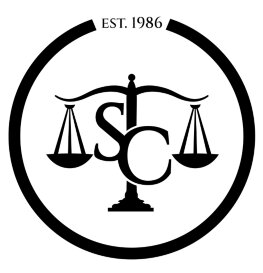Best Faith-Based Law Lawyers in South Africa
Share your needs with us, get contacted by law firms.
Free. Takes 2 min.
Or refine your search by selecting a city:
List of the best lawyers in South Africa
About Faith-Based Law in South Africa
Faith-Based Law in South Africa encompasses the intersection of legal systems and religious traditions. It involves understanding how religious practices and beliefs are accommodated within the legal framework of the country. South Africa is a diverse nation with multiple religions such as Christianity, Islam, Hinduism, Judaism, and African Traditional Religions, each having unique legal considerations. The South African Constitution respects freedom of religion and provides the basis for religious communities to manage their own affairs, as long as they do not contravene public policy or fundamental human rights.
Why You May Need a Lawyer
There are several occasions where you might require legal assistance regarding Faith-Based Law:
- Marriage and Divorce: Navigating the legal recognition of religious marriages and divorces.
- Employment Issues: Addressing discrimination in workplaces based on religious beliefs.
- Religious Property Disputes: Handling conflicts pertaining to property used for religious purposes.
- Freedom of Religious Practice: Protecting the right to practice your religion freely, especially in instances where it clashes with civil laws.
- Religious Institutions: Legal matters concerning the governance, registration, and taxation of religious organizations.
Local Laws Overview
The legal environment related to faith is guided by the Constitution, which guarantees freedom of religion. Key legal aspects include:
- Religious Inclusion in Legal Processes: South African courts recognize religious doctrines and their role in family law, provided these do not conflict with constitutional rights.
- Customary Marriages: Recognized under the Recognition of Customary Marriages Act, which allows marriages according to traditional customs.
- Education: Schools are allowed to provide religious instruction but must accommodate various faiths and respect parental preferences.
- Religious-Based Discrimination: Protected against under the Promotion of Equality and Prevention of Unfair Discrimination Act.
Frequently Asked Questions
What is Faith-Based Law?
Faith-Based Law involves legal matters that intersect with religious principles and practices, recognizing the role of religions in justice, dealings, and societal norms.
Can religious marriages be legally binding in South Africa?
Yes, religious marriages can be legally recognized if they comply with the Marriage Act or the Recognition of Customary Marriages Act.
What rights does the Constitution provide for religious practices?
The Constitution of South Africa ensures the right to freedom of religion, belief, and opinion, and provides for religious observances in state and state-aided institutions.
How does the law address discrimination based on religion?
The law prohibits discrimination based on religion. Cases can be pursued under the Equality Act to seek redress for religious discrimination.
Are there special considerations for religious dress or symbols in public spaces?
Generally, individuals are free to express their religious identity through dress and symbols, as long as it does not infringe on the rights of others or public safety.
Is it possible to resolve disputes in religious courts?
Some communities may use religious courts for internal matters, but binding legal authority requires alignment with constitutional principles and the formal legal system.
Do religious groups need to register with the government?
While not mandatory for worship, registration can legitimize a religious organization, allowing for benefits such as tax exemptions and formal recognition.
Can faith-based arbitration be enforced by South African law?
Faith-based arbitration can be recognized, provided it aligns with the Arbitration Act and respects South African legal principles.
What recourse is available if religious freedom is infringed?
Individuals may approach the constitutional courts or the South African Human Rights Commission if they believe their religious freedoms have been violated.
How can traditional and religious leaders contribute to legal processes?
They can offer mediation in cultural and religious contexts and act as advisors or witnesses in relevant legal cases, provided their influence respects constitutional law.
Additional Resources
For further information or assistance, consider reaching out to the following:
- The South African Human Rights Commission
- Legal Aid South Africa
- Commission for the Promotion and Protection of the Rights of Cultural, Religious and Linguistic Communities
- Faith-based legal advisory services and law firms
Next Steps
If you require legal assistance in Faith-Based Law, consider taking the following steps:
- Identify Your Needs: Clearly define the nature of your legal issue relating to Faith-Based Law.
- Consult a Legal Professional: Seek the services of a lawyer experienced in Faith-Based Law for tailored advice and representation.
- Gather Documentation: Collect all relevant documents and evidence to support your case, including religious texts, contracts, or communication.
- Understand Your Rights: Educate yourself on your rights under South African law to better navigate your legal challenges.
- Consider Mediation: Explore alternative dispute resolutions that may offer quicker and less adversarial solutions.
Lawzana helps you find the best lawyers and law firms in South Africa through a curated and pre-screened list of qualified legal professionals. Our platform offers rankings and detailed profiles of attorneys and law firms, allowing you to compare based on practice areas, including Faith-Based Law, experience, and client feedback.
Each profile includes a description of the firm's areas of practice, client reviews, team members and partners, year of establishment, spoken languages, office locations, contact information, social media presence, and any published articles or resources. Most firms on our platform speak English and are experienced in both local and international legal matters.
Get a quote from top-rated law firms in South Africa — quickly, securely, and without unnecessary hassle.
Disclaimer:
The information provided on this page is for general informational purposes only and does not constitute legal advice. While we strive to ensure the accuracy and relevance of the content, legal information may change over time, and interpretations of the law can vary. You should always consult with a qualified legal professional for advice specific to your situation.
We disclaim all liability for actions taken or not taken based on the content of this page. If you believe any information is incorrect or outdated, please contact us, and we will review and update it where appropriate.
Browse faith-based law law firms by city in South Africa
Refine your search by selecting a city.















